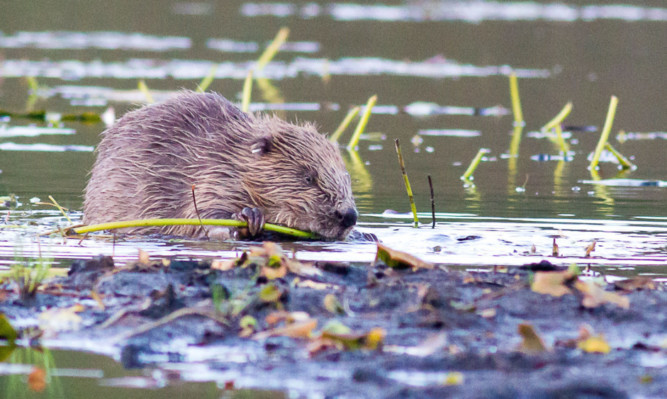Scotland’s farmers have every reason to believe the current Holyrood regime is not on their side. Their long-running fight to secure overdue EU subsidy payments, massively delayed by a botched government IT system, had still not been resolved when the parliament shut down last week.
An eleventh hour emergency fund announced by rural affairs minister Richard Lochhead has done nothing to restore their trust in an administration they feel neither understands nor cares much for their sector.
Now, another farming issue has reared up, fuelling suspicions the SNP’s urban elite is motivated more by fairytale misconceptions about the countryside than by farmers’ priorities.
In fact, the introduction of non-native beavers into Tayside is not a new problem at all, dating back 10 to 15 years, when the rodents escaped or were deliberately and illegally released on land between Loch Tay and the Fife coast.
Havoc
Since then their numbers have continued to multiply, causing havoc for arable farmers in Strathmore, the fertile valley known as the “bread basket of Scotland”.
An estimated 200 Eurasian beavers in the region have been felling trees and their dams have raised the water table and saturated the ground.
These are wilderness animals dumped on to land that has been carefully cultivated over hundreds of years.
They could cause serious flooding in areas where farmers have maintained drainage channels to lower the water table, said Euan Walker-Munro, who farms mixed cereals and potatoes outside Kirriemuir in Angus.
He wants the beavers removed from the area regardless of protests from green activists and urban voters, and said ministers face a stark choice between arable farming in low-lying areas or uncontrolled beavers.
He and another local farmer, John Mackay, who farms potatoes in Strathmore, said they don’t have the resources to cull the beavers themselves.
Although they are not a protected species, having been extinct in this country since the 16th Century, they are nocturnal and difficult to spot, so farmers have demanded government action.
However, nothing will now happen until after the Scottish election in May and it is unlikely farmers will be offered a swift solution afterwards, even if a new minister is appointed.
Lochhead’s deputy, Aileen McLeod, told farmers last week that no decision would be taken until “later this year”.
The SNP said in 2012 that it would “tolerate and study” the beavers on Tayside, particularly in the Strathmore and Strathearn areas, before deciding what to do about them, and whether to approve a widespread reintroduction after a five-year trial project at Knapdale in Argyll.
But ministers seem so in thrall to the green lobby that the period of toleration and study now seems indefinite and even the economic case made by farmers falls on deaf ears.
Powerful
Farmers are up against powerful conservation quangos such as the National Trust for Scotland, which backs the introduction of beavers, and Scottish Natural Heritage, which appears to share nationalist politicians’ view of rural Scotland as a sort of theme park rather than a working environment.
Ministers have plenty of past form here, pandering to the eco-romantics in the Green Party, whose pro-independence votes they have relied on, and to desk-bound bureaucrats with no real comprehension of how the countryside operates.
The government’s imposition of Marine Protected Areas last year has placed unnecessary restrictions on inshore fisheries on the west coast, despite fishermen’s leaders warning that “conservation measures need to be right, not gratuitously damaging”.
And last summer Lochhead dismissed on a mere whim the ground-breaking advances of Scottish scientists in the field of genetically modified plants. Scotland, he decided without consulting expert advice, would opt out of EU directives and ban the growing of GM crops.
Clean and green?
Ignoring scientists’ pleas that his decision would adversely affect farming as well as scientific research, Lochhead said he was protecting Scotland’s “clean and green” reputation.
Somehow, beavers fit into this warped world that looks backwards, where technological improvements are considered corrupting and honest toil is undermined by woolly headed idealists with an eye on the past.
Farmers trying to accommodate the explosion of feral beavers are accused of acting inhumanely by animal groups when they do manage to shoot the pests. And one farmer who removed dozens of dams reportedly received hate mail and was trolled online.
But, as Walker-Munro said, these animals did not need to be here.
In a letter to this newspaper last week, he wrote: “Just about rule number one in any wildlife reintroduction is to not undertake it in an area of maximum human-to-animal conflict. An area top of such a list to avoid would be the Strathmore Valley.”
But so shallow is this government’s grasp on the rural economy and the communities it supports that a sentimental ploy will always take precedence over real people and their livelihoods.
